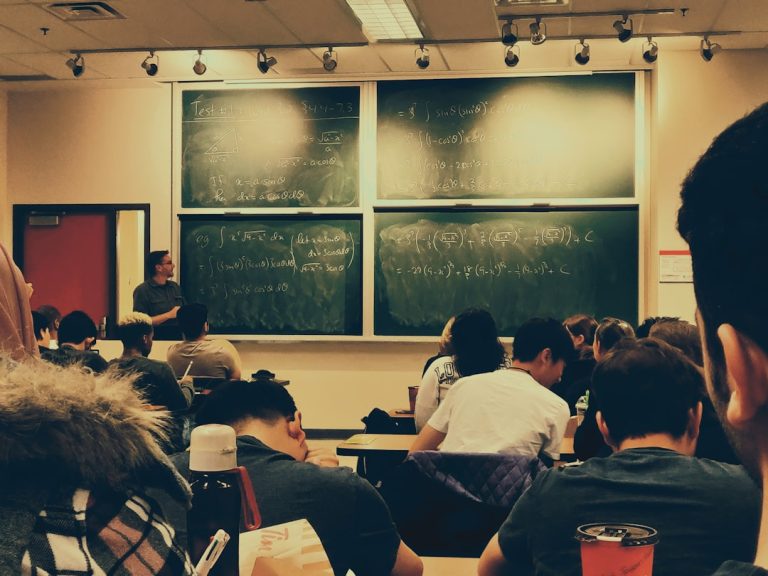
Educational and career counselors play a pivotal role in guiding individuals through the complex landscape of academic and professional choices. They serve as facilitators, helping students and job seekers identify their strengths, interests, and values, which are crucial for making informed decisions about their educational paths and career trajectories. By conducting assessments and providing personalized advice, counselors empower clients to explore various options, whether it be selecting a suitable college, choosing a major, or navigating the job market after graduation.
They also stay updated on industry trends and educational programs, ensuring that their guidance is relevant and effective. By fostering a supportive environment, educational and career counselors help individuals build confidence in their abilities and make choices that align with their long-term goals.
Their work is not just about immediate decisions; it is about equipping clients with the tools they need to adapt to an ever-changing world.
Key Takeaways
- Educational and career counselors play a crucial role in guiding students and professionals towards successful educational and career paths.
- Educational requirements for career counselors typically include a master’s degree in counseling or a related field, along with supervised clinical experience.
- Career opportunities for counselors are expected to grow, with a positive job outlook in various settings such as schools, colleges, and private practices.
- Specializations in educational and career counseling can include areas such as college admissions, vocational rehabilitation, and mental health counseling.
- Educational and career counseling is important for students as it helps them make informed decisions about their academic and career choices, leading to better outcomes in the long run.
Educational Requirements and Training for Career Counselors
To become an effective educational and career counselor, individuals typically need a solid educational foundation in psychology, education, or a related field. Most positions require at least a master’s degree in counseling or a closely related discipline. Graduate programs often include coursework in career development theories, counseling techniques, ethics, and assessment methods.
Licensure is another critical component of becoming a career counselor. In many regions, counselors must obtain a license to practice, which usually involves passing a comprehensive examination and completing a specified number of supervised hours in the field.
Continuing education is also vital; counselors must stay abreast of new developments in educational policies, labor market trends, and counseling methodologies. This commitment to lifelong learning ensures that they can provide the most accurate and effective guidance to their clients.
Career Opportunities and Job Outlook for Counselors

The job outlook for educational and career counselors is promising, with the U.S. Bureau of Labor Statistics projecting a growth rate of 8% from 2021 to 2031, which is faster than the average for all occupations. This growth is driven by an increasing awareness of the importance of mental health and well-being in educational settings, as well as the need for skilled professionals who can assist individuals in navigating complex career paths in a rapidly evolving job market.
Career opportunities for counselors are diverse. They can work in various settings, including public schools, colleges and universities, community organizations, private practices, and corporate environments. Each setting presents unique challenges and rewards; for instance, school counselors often focus on academic achievement and personal development among students, while those in corporate settings may concentrate on employee development and organizational effectiveness.
The versatility of this profession allows counselors to tailor their careers to their interests and strengths.
Specializations in Educational and Career Counseling
| Specialization | Median Salary | Job Outlook |
|---|---|---|
| School Counseling | 56,310 | 8% growth (Faster than average) |
| College and Career Counseling | 57,040 | 8% growth (Faster than average) |
| Adult Education Counseling | 56,800 | 5% growth (Average) |
Within the field of educational and career counseling, there are several specializations that professionals can pursue to enhance their expertise and better serve specific populations. One such specialization is school counseling, where counselors work directly with students to address academic challenges, social issues, and emotional well-being. These counselors often collaborate with teachers and parents to create a supportive environment conducive to learning.
Another specialization is career counseling for adults, which focuses on helping individuals navigate career transitions, whether due to job loss, changes in personal circumstances, or the desire for professional growth. This area often involves providing guidance on skill development, job search strategies, and networking opportunities. Additionally, some counselors may choose to specialize in working with specific populations, such as veterans transitioning to civilian careers or individuals with disabilities seeking employment.
Each specialization requires a unique set of skills and knowledge tailored to the needs of the target group.
The Importance of Educational and Career Counseling for Students
Educational and career counseling is crucial for students as they face numerous decisions that can significantly impact their futures. With the increasing complexity of educational pathways—such as dual enrollment programs, online courses, and vocational training—students often feel overwhelmed by the choices available to them. Counselors help demystify these options by providing clear information about different educational routes and their potential outcomes.
Moreover, counselors play an essential role in fostering self-awareness among students. Through assessments and discussions about interests and values, students gain insights into their strengths and weaknesses. This self-knowledge is vital for making informed decisions about their academic pursuits and future careers.
By guiding students through this process, counselors not only help them choose appropriate educational paths but also instill confidence that will serve them well throughout their lives.
Salary and Benefits for Educational and Career Counselors

The salary for educational and career counselors can vary significantly based on factors such as location, level of education, years of experience, and the specific setting in which they work. According to the U.S. Bureau of Labor Statistics, the median annual wage for school counselors was approximately $60,510 as of May 2021.
Those working in higher education or specialized settings may earn higher salaries due to the additional responsibilities associated with those roles. In addition to competitive salaries, many counselors enjoy comprehensive benefits packages that may include health insurance, retirement plans, paid time off, and professional development opportunities. The nature of counseling work often allows for flexible schedules, particularly in private practice or consulting roles.
This flexibility can contribute to a better work-life balance, making the profession appealing to many individuals seeking meaningful careers that also accommodate personal commitments.
Challenges and Rewards of Working as a Counselor
While working as an educational or career counselor can be incredibly rewarding, it also comes with its share of challenges. One significant challenge is managing the emotional demands of the job. Counselors often work with individuals facing significant stressors such as academic pressure, unemployment, or personal crises.
This requires not only strong emotional resilience but also effective coping strategies to prevent burnout. Despite these challenges, many counselors find immense satisfaction in their work. The ability to make a positive impact on someone’s life—whether by helping a student discover their passion or guiding an adult through a career transition—can be profoundly fulfilling.
Witnessing clients achieve their goals or overcome obstacles provides a sense of purpose that drives many professionals in this field. Additionally, the opportunity for continuous learning and professional growth keeps the work dynamic and engaging.
Resources and Organizations for Educational and Career Counselors
Numerous resources and organizations support educational and career counselors in their professional development and practice. The American Counseling Association (ACA) is one such organization that provides members with access to training materials, networking opportunities, and advocacy resources aimed at promoting the counseling profession. The ACA also publishes research journals that keep counselors informed about the latest developments in counseling theories and practices.
Another valuable resource is the National Career Development Association (NCDA), which focuses specifically on career counseling professionals. The NCDA offers certification programs that enhance credibility within the field while providing access to conferences that facilitate networking with other professionals. Additionally, online platforms such as LinkedIn Learning offer courses on various counseling techniques and tools that can further enhance a counselor’s skill set.
These resources are essential for staying current in an ever-evolving field where new challenges arise regularly.
If you are interested in learning more about careers in the USA, you should check out the article “Hello World” on careersintheusa.com. This website offers valuable information and resources for individuals seeking guidance on educational, career, and guidance counseling in the United States. Whether you are a student exploring different career paths or a professional looking to advance in your current field, this site has something for everyone. Visit careersintheusa.com for more information and resources on pursuing a successful career in the USA.
FAQs
What is the role of an educational, guidance, and career counselor and advisor?
Educational, guidance, and career counselors and advisors help students and individuals make educational and career decisions. They provide guidance on academic and career goals, assist with college and job applications, and offer support in personal and social development.
What are the educational requirements to become an educational, guidance, and career counselor and advisor?
To become an educational, guidance, and career counselor and advisor, individuals typically need a master’s degree in school counseling or a related field. Some positions may also require a state-issued credential or license.
What skills are important for educational, guidance, and career counselors and advisors?
Important skills for educational, guidance, and career counselors and advisors include active listening, communication, empathy, problem-solving, and organizational skills. They also need to be knowledgeable about educational and career resources.
What is the job outlook for educational, guidance, and career counselors and advisors in the USA?
According to the U.S. Bureau of Labor Statistics, the employment of educational, guidance, and career counselors is projected to grow 8 percent from 2020 to 2030, which is about as fast as the average for all occupations.
What are the typical work environments for educational, guidance, and career counselors and advisors?
Educational, guidance, and career counselors and advisors work in a variety of settings, including elementary and secondary schools, colleges and universities, vocational rehabilitation services, and private practices. They may also work in community organizations or government agencies.






